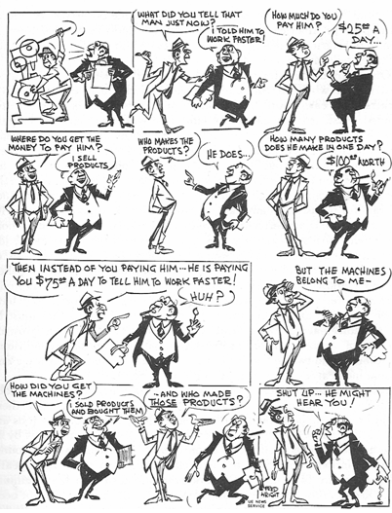People are driven by the idea of being richer, and that it will make us happy and secure. This video goes on to explain why people suffer from this “status anxiety”, this anxiety that we are successful based on our status. People are resentful towards those who we consider to be our equals. We are envy towards them when they have a better house, job or car. This because our society tells us that we are suppose to be equal, but in reality we are actually living in a society filled of inequality. Weber explains that status and class creates the competition with people. Weber also explains that peoples actions are shaped by society, this is true in our society in which our drives and aspirations are based on this idea of the American Dream. The American Dream that we will all be equal and live comfortable and can afford nice things. This ideal creates the status anxiety that is explained in this video.
Categories
-
Recent Posts
Recent Comments
akeya928 on FASHION- BLOG # 3 akeya928 on Blogpost #5-Goffman akeya928 on Charlotte Perkins Gilman: Gend… akeya928 on Blog: Goffman “England riots:… Authors
-
acoreas50
-
adeen100
-
agriff25
-
akeya928
-
amandasenft
-
angeladavi
-
cabreu1584
-
christianvasquez1
-
cuff6
-
dejuhan23
-
dlatchman100
-
drea1106
-
enathanail
fnaeem22
-
francesl83
gap1028
hirenv91
-
italiabella2000
-
jarissap
-
jmarmolejos1082
-
kadianweir76
-
katiyoel
-
lemonita92
-
lizethmejia
-
melissafeliz
-
michelialonso
-
michellegonz1993
-
mockingbird26
-
Nicole Hala
nicollevr
-
patrickparker4
-
ronaldwashingtonjr
-
rromero91
-
sahifa1992
-
scarrano1
-
shannonhopeinman
-
smarte17
-
soc331b
-
szappone
-
tasneem1907
-
tika1011
-
tjcarman24
-
tmcshan51
-
tmorales102
-
yassminsimm
-
yudz22
-




You must be logged in to post a comment.